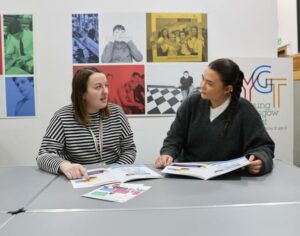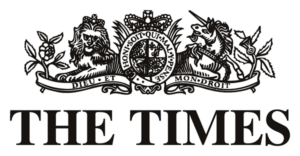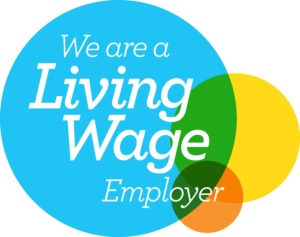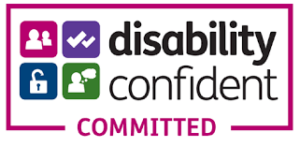MCR Pathways has over 1,000 fantastic and committed mentors throughout Scotland who would normally be going to school each week to visit the young person they are matched with. Young people tell us their meetings are so important because their mentor is independent of their school, encouraging, listening and, most importantly, caring.
On March 20th however, schools across Scotland closed for most pupils and to ‘visitors’, with the government advising us all to stay home for our safety and protection from the Coronavirus.
For many young people, that meant the rug has been pulled from under them.
School for some young people is a safe place and an escape from the world outside. So what has the MCR programme been doing to adapt and support some of our most vulnerable young people? And what can mentors do to reassure and continue their role despite having no face-to-face contact?
The MCR team has quickly developed ‘virtual mentoring options’ which allow young people to ‘meet’ their mentors via video and audio calls and live chats, whilst maintaining safeguarding guidelines. The team has begun to roll out these new options and help MCR’s community of mentors to reach out to their young person, and offer renewed contact and a sense of normality.
Adjusting To A New Approach
At the start of the lockdown MCR Mentors, like PR consultant Jill, were feeling unsure of how she could keep in touch with her young person R*, who she’s known for 3 years. However, the MCR Pathways Coordinator was quick to help them stay in touch. Jill told us:
“I sent R* a birthday card and a wee gift for her 18th and she sent me a lovely reply telling me she’d had a great (lockdown) birthday.”
The pair have exchanged a few messages since and are planning their first video chat, but Jill can tell that lockdown has been difficult for her young person. She recommends that other mentors keep communications regular and positive.
“I don’t ask questions but talk about what I am doing to keep busy and reinforce how fantastic it is that she has a college place to start later in the year.”
Jill, like many mentors, has been quick to react and adapt to this new challenge and feel that she’s still fulfilling her role. She is still there for R, who is due to leave school officially this year. With the help of Jill and the MCR team, her young person applied for college to pursue her ambition of becoming a nurse. R was over the moon to receive an offer from the college she wanted to attend. So that continued contact is still really important to both of them.
Joanne, a systems manager with EDF, mentors in South Lanarkshire and had only started meeting her young person 6 weeks before lockdown but continued to send messages when schools closed. More recently the pair had their first virtual meeting with an audio call and Joanne is already been able to offer him some practical help.
“He’s working through the assignments sent from school but is struggling with keeping track of the different due dates and was a little nervous about contacting teachers if things are unclear. We came up with a strategy to log the deadlines on his phone calendar, which he’s trying out this week and when prompted he decided he could raise issues himself with his teacher.”
Her advice to others would be:
“Definitely keep up the communication even if it is one way. Don’t be disheartened with no response or if you can’t have a virtual meetup. However, I highly recommend having a virtual session if that’s possible. It really was lovely to have a two-way chat. I do wonder what we’ll talk about next week as we’re not exactly leading exciting lives at the moment, but I’m going to dip into some of the resources on the hub for ideas and we’ll choose something to do together.”
Staying Positive. Staying In Touch.
Many mentors have been working on challenges for their mentees to complete each week, setting goals or even sharing positive quotes back and forth. This contact also keeps their Pathways Coordinators in the loop and relationships which may otherwise have fallen away are built stronger than ever by their combined response to the crisis.
The role of a mentor is someone to guide and to offer support which has never been more needed. But the role has changed with the current situation. We hope that mentors will be realistic, patient and most importantly stay positive. Our young people need us more than ever and we expect this need to increase over the coming months. Young people are worried about their futures, their education and their health and wellbeing. So let’s focus on being there for them, adapting to change and listening to their voices. Working together with our schools and communities, we will let our young people know that we care and will help them face the future one step at a time.




